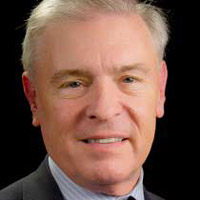Leadership Skills: How to Be a Successful Communicator

Leadership Skills: How to Be a Successful Communicator
Author: Jacqueline Moore
As a business leader, one of the most important leadership skills you’ll ever demonstrate is knowing how to communicate. When you think about it, most business leadership consists of communication of one sort or another.
You hold meetings with staff or board members or suppliers, you interview potential managers, you meet customers and shareholders, you chat in the corridor or on the phone. All of these formal and informal moments offer you the chance to influence, to enthuse and to inspire.
So how can you make the most of these moments – how can you become a truly successful communicator?
Communication involves a variety of interactions. It involves discussing, and listening, and debating. But communication also often involves a senior executive passing on some information. This may seem a fairly simple task. But it’s amazing how often business leaders don’t give enough information, or shroud it in jargon, or tell the wrong people.
HOW you pass on information can significantly affect what happens next. If you want people (whether your staff or your suppliers or customers) to act on the information, you need to make sure they understand it. And that’s not as simple as it sounds.
There are several lessons we can learn here from people whose whole business is communication. Journalists depend entirely on their words. And journalists are taught a range of tips and techniques for making their information compelling, interesting and easy to understand. Many of these techniques are just as useful for business executives, and are well worth exploring.
I’ve found that thinking about how news stories work in newspapers, for example, can help executives communicate complex messages in a simple, brief and yet memorable way, both in print and in person.
News stories are designed to grab our attention from the opening sentence. They try to tell us the news in simple, easy-to-understand language. And they don’t assume we know much about the subject already. So when you as a business executive have some information to pass on, it’s worth trying to compile it as a news story – that way, you won’t miss out anything vital.
So what makes a good a news story? In an ideal world, the opening paragraph should:
– sum up the story
– have the most important facts first
– be short and punchy and contain only essential facts
– use emotive words early on
– possibly contain an appropriate quote
– appeal to the reader in his or her area, in his or her business, or because it affects his or her pocket or way of life.
That’s a lot to fit into a few lines. So the easiest thing to do is make sure your opening paragraph answers all the questions a reader may have:
Who? What? How? Where? When? Why?
Take an example of a news story from a business newspaper:
Who? Former senior executives at X Corp
What? were arrested
How? by FBI agents
Where? in New York
When? today
Why? on suspicions of tax evasion.
This works equally well when you’re announcing something to your staff (the order in which you answer the questions can vary):
Who? I (John Doe, CEO of Y Company,)
What? want to thank
Where? all of you in our Toronto division
Why? for raising sales an impressive 5 percent
When? in the fourth quarter
How? and invite you all to a celebration lunch next week.
In a news story, it’s important not to venture your own opinion or comment. The above item may appear to cross this line – it describes the sales increase as ‘impressive’ – but further down in the story (or in the internal memo or in the email to staff) the writer could justify the use of the word ‘impressive’ by comparing it with the target or with increases in previous quarters.
If the fundamental purpose of news is to inform, it’s essential that you allow your readers to make up their own minds on the information you provide. Do not try to sell your own opinion as fact.
To sum up, the crucial point to remember when you’re communicating information is that the most important information should appear first. If you do that, answering all the questions as suggested, there’s a good chance that you’ll get your message across and that everyone will understand it.
About the Author:
If you want the leadership success you deserve, get the leadership training you deserve. Download more free articles and leadership training videos from business journalist Jacqueline Moore and Steven Sonsino, authors of the Amazon bestseller “The Seven Failings of Really Useless Leaders” Get more FREE videos and articles right now: http://www.deathofleadership.com
Article Source: ArticlesBase.com – Leadership Skills: How to Be a Successful Communicator
We hope you found this article about “Leadership Skills: How to Be a Successful Communicator” helpful. If you have questions or need expert tax or family office advice that’s refreshingly objective (we never sell investments), please contact us or visit our Family office page or our website at www.GROCO.com. Unfortunately, we no longer give advice to other tax professionals gratis.
To receive our free newsletter, contact us here.
Subscribe our YouTube Channel for more updates.

Alan Olsen, is the Host of the American Dreams Show and the Managing Partner of GROCO.com. GROCO is a premier family office and tax advisory firm located in the San Francisco Bay area serving clients all over the world.
Alan L. Olsen, CPA, Wikipedia Bio

GROCO.com is a proud sponsor of The American Dreams Show.

The American Dreams show was the brainchild of Alan Olsen, CPA, MBA. It was originally created to fill a specific need; often inexperienced entrepreneurs lacked basic information about raising capital and how to successfully start a business.
Alan sincerely wanted to respond to the many requests from aspiring entrepreneurs asking for the information and introductions they needed. But he had to find a way to help in which his venture capital clients and friends would not mind.
The American Dreams show became the solution, first as a radio show and now with YouTube videos as well. Always respectful of interview guest’s time, he’s able to give access to individuals information and inspiration previously inaccessible to the first-time entrepreneurs who need it most.
They can listen to venture capitalists and successful business people explain first-hand, how they got to where they are, how to start a company, how to overcome challenges, how they see the future evolving, opportunities, work-life balance and so much more..
American Dreams discusses many topics from some of the world’s most successful individuals about their secrets to life’s success. Topics from guest have included:
Creating purpose in life / Building a foundation for their life / Solving problems / Finding fulfillment through philanthropy and service / Becoming self-reliant / Enhancing effective leadership / Balancing family and work…

MyPaths.com (Also sponsored by GROCO) provides free access to content and world-class entrepreneurs, influencers and thought leaders’ personal success stories. To help you find your path in life to true, sustainable success & happiness. It’s mission statement:
In an increasingly complex and difficult world, we hope to help you find your personal path in life and build a strong foundation by learning how others found success and happiness. True and sustainable success and happiness are different for each one of us but possible, often despite significant challenges.
Our mission at MyPaths.com is to provide resources and firsthand accounts of how others found their paths in life, so you can do the same.
Serial Entrepreneur | Aldo Carrascoso
About Aldo Carrascoso Aldo Carrascosois the Founder and COO / CTO of Veem, a company that utilizes Blockchain to allow individuals to make cross border payments in local currencies. The company was conceptualized by Aldo when learned that individuals making cross border payments were having to pay up to 25% of the transfer amount…
Turning Tragedy into Positive Experiences | Gerald Carroll
About Gerald Carroll Gerald Carroll is a partner with Burnham Brown law firm in their Oakland office. He specializes in Construction and Professional Liability Law. Prior to coming to Burnham Brown, Jerry along with his partner ran their own law practice, Hartman and Carroll for 20 years. Jerry graduated with honors in English from…
Why Startups Need Legal Counsel | Jackie Ammon
About Jackie Ammon Jackie Ammon is a senior associate who focuses her practice on corporate matters at WilmerHale. Prior to joining WilmerHale, Ms. Ammon was a judicial extern for the Honorable Frederick F. Mumm of the US District Court for the Central District of California. In that role, she wrote Report and Recommendation for…
The 10 Laws of Trust | Joel Peterson
About Joel Peterson Joel Peterson is Chairman of JetBlue and a consulting Professor at the Stanford Graduate School of Business. Together along with David Kaplan he authored The 10 Laws of Trust, a business leadership book about building high-trust organizations. Mr. Peterson is the former managing partner of Trammel Crow, one of the top leading…




